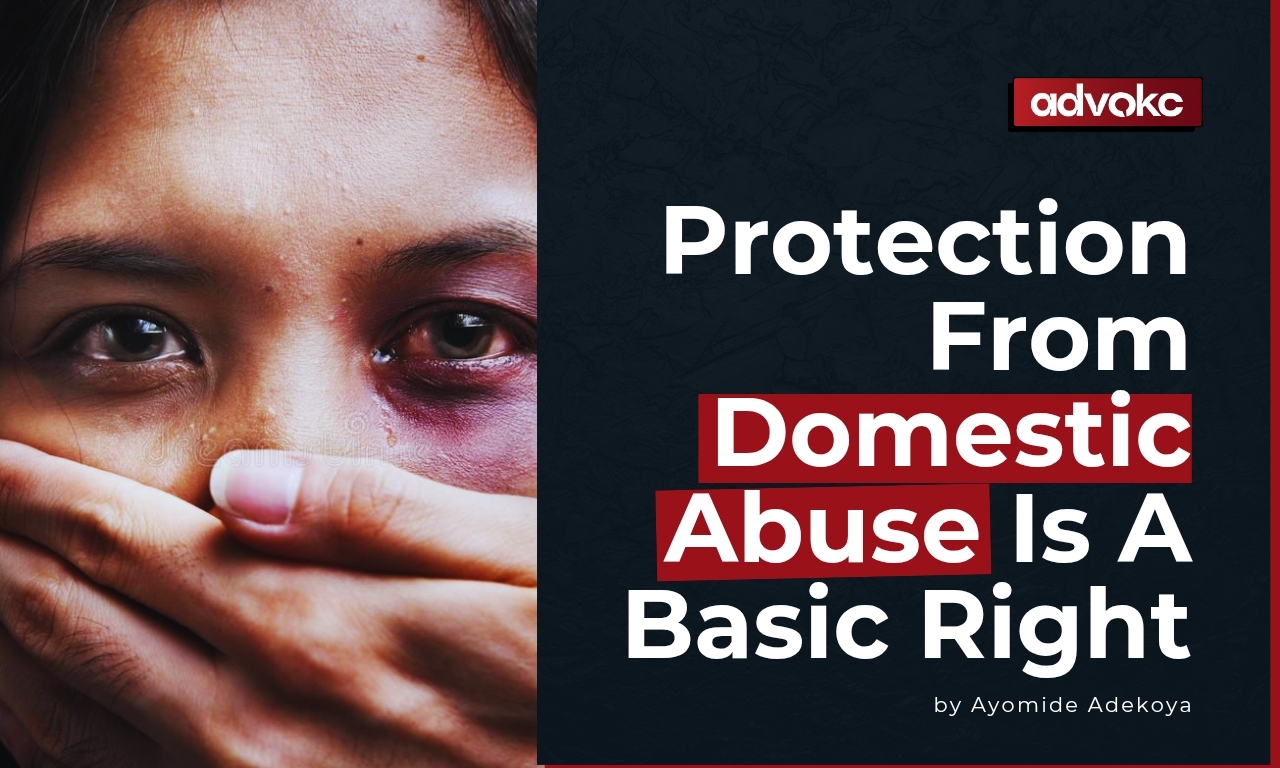
My first experience with violence came at the tender age of ten. It was not from a stranger, but a classmate, a child herself, yet carrying the chaos of a broken home. She exploited me financially, sexually, and emotionally for years, transforming what was meant to be a place of learning and joy into a source of her own emotional pain. School stopped being about curiosity; it became about survival. It took my mother noticing the shift in my spirit before she withdrew me, saving me from further harm.
That experience shaped me, not in fear, but in understanding. It taught me that survivors often remain silent not because of shame or judgment, but because of something far more paralysing " fear itself "; it feels like a silent rope tightening around your neck and a tape pressed across your mouth. You breathe, but never fully. You live, but only halfway. Fear has an acrid scent, clinging to the skin like cheap bleach, It seeps into your bones until you forget what safety smells like. And if I could feel that kind of fear at such a young age, imagine the despair of countless children and victims across our nation.
It is impossible to speak of domestic abuse without remembering Elizabeth Ochanya Ogbanje, the child whose body bore the price of silence. Seven years ago, her uncle and cousin repeatedly defiled a child entrusted to her maternal relatives, leading to her death from a vesicovaginal fistula (VVF). Her death was not fate but failure. Failure of family, failure of community, and also a failure of system. And her story, like so many others, reminds us that gender-based and domestic violence are not private matters; they are public wounds that bleed through homes, communities, and the conscience of our nation.
Every act of abuse, whether physical, emotional, sexual, or economic, is a violation of human dignity and a betrayal of human rights.
AdvoKC’s Promise Tracker has brought two vital commitments to light.
Kaduna State Governor, Uba Sani, promised to “accelerate enforcement of the Violence Against Persons Law and other laws relevant for the protection of vulnerable groups.”
Oyo State Governor, Seyi Makinde, pledged to “expand the 615 citizen’s enquiry number to accommodate a dedicated helpline for victims of domestic violence.”
Yet today, reality tells a sobering story:
Across Nigeria, the Oyo State 615 helpline stands as a symbol of what access to safety should look like a direct channel to help and rescue. . AdvoKC sent a letter on December 4, 2024, but there has been no response yet. Victims in Oyo still have to appear physically at the Ministry of Justice to lay complaints, a journey many will never survive to make.
When systems fail to respond, human lives hang. The Nigerian government designed the Violence Against Persons (Prohibition) Act (VAPP) 2015 to ensure that every Nigerian child or adult can live free from fear and violence. But a law that is not alive with compassion and executed with urgency is only ink on paper.
This Domestic Violence Awareness Month is more than remembrance; it is a renewal of responsibility. The fight against abuse must not be seasonal; it must be consistent, funded, and felt. Governments must do more than legislate; they must facilitate action. They must ensure that every citizen has access to:
Every call ignored is a cry left unanswered. Every untrained responder is a risk to another victim’s life.
If you are hurting, uncertain, or afraid, please remember this truth: You are not alone. You are not the pain you endured. You are not the silence that followed. You are living proof of courage, even in your quietest moments. Reach out for help. Keep calling. Keep choosing yourself.
📞 Lagos State Domestic & Sexual Violence Agency: 0800 333 333 3 (Toll-Free)
📞 Women Safe House (NGO): 0812 113 3399
📞 The Cece Yara Foundation(NGO): 0800 800 8001
People should listen to you, even when it feels like no one will respond.
Because to love yourself is not selfish: It is the beginning of your healing, and the echo that tells the world and yourself, “I survived, and I will rise again.”